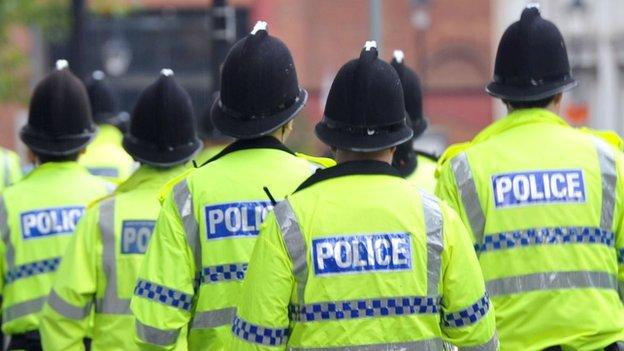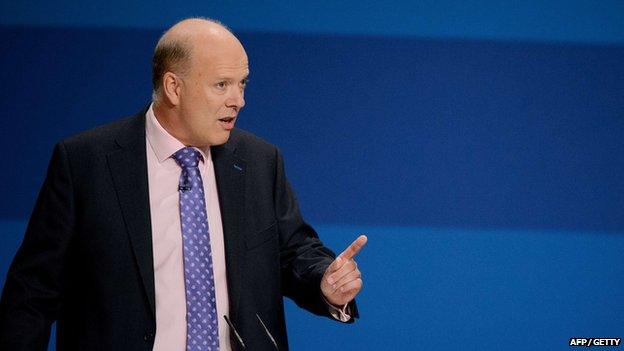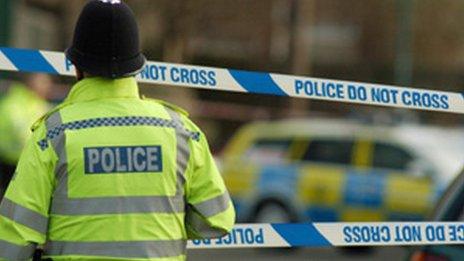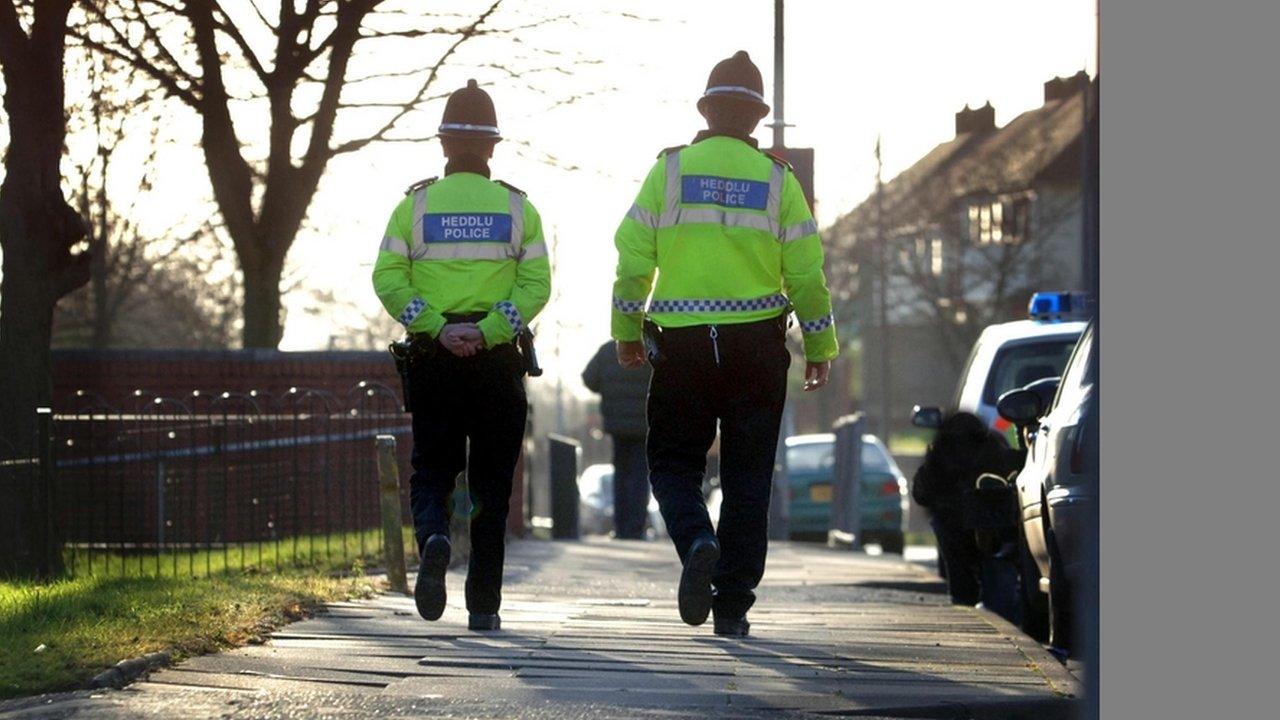Police cautions 'to be scrapped' in England and Wales
- Published
- comments

The government is planning to scrap the use of police cautions - where those who commit minor offences are given a formal warning - in England and Wales.
Justice Secretary Chris Grayling said victims should not feel that criminals are "walking away scot-free".
Under the new system, offenders would repair any damage they have done or pay compensation for less serious crimes.
Those who commit more serious offences would face court if they fail to comply with conditions set out by police.
The system will be trialled for a year in the Staffordshire, West Yorkshire and Leicestershire police force areas, starting this November.
If successful it will be introduced across England and Wales.
The government says the scheme - which will also give victims a say in how the offender is dealt with - will be tougher and more simple than the current system.
'No soft option'
Mr Grayling said: "It isn't right that criminals who commit lower-level crime can be dealt with by little more than a warning.
"It's time we put an end to this country's cautions culture. I think every crime should have a consequence, and this change will deliver that.
Paul Ford, Police Federation of England and Wales: "It's great... but I don't know how it's going to work"
"Under the new system we are introducing, offenders will face prosecution if they fail to comply with the conditions set by the police, so that no one is allowed to get away with the soft option."
The overhaul of what are known as out-of-court disposals will mean cannabis warnings, community resolutions, penalty notices for disorder, simple cautions and conditional cautions would be replaced by the new two-tier framework.
As part of the scheme, first-time offenders committing minor crimes would face a new statutory community resolution.
This could see them offering a verbal or written apology to their victim, paying compensation or fixing damage.
More serious crimes would be dealt with by a suspended prosecution which would have one or more conditions attached, for example paying a fine, or attending a rehabilitation course.
Suspended prosecutions would be traced on a criminal record but community resolutions would not, the Ministry of Justice said.

Chris Grayling said the new system would 'empower' victims
Mr Grayling added: "Our police officers do a brilliant job in keeping our streets safe. But victims should not feel like offenders are walking away scot-free.
"I'm not prepared to allow the current situation to continue and that is why I am making these changes.
"This new approach will empower victims and give them a say in how criminals are dealt with, as well as making it easier for officers to deal with more minor offences."
'Take responsibility'
Chief Constable Lynne Owens, national policing lead on out-of-court disposals, said the reforms should reduce bureaucracy and help increase public understanding.
She said: "The pilots seek to test a new approach which gives officers and staff the discretion to deal with cases appropriately.
"It will engage the victim in the process and require offenders to take responsibility for their actions."
Police officers will use their judgement to assess each offence, as they do with the current system.
Richard Monkhouse, chairman of the Magistrates' Association, said: "We have pressed hard for a simplification of cautions, so this pilot is welcome especially in empowering victims.
"However, we need to see more detail on the measurement of the pilot's effectiveness because our members tell us there are existing challenges with local scrutiny panels in evaluating the current regime for out-of-court disposals.
"It's also important that this doesn't lead to an over-escalation and criminalisation of behaviour currently dealt with by informal community resolutions."
Justice system 'cheapened'
The shadow justice secretary, Sadiq Khan, said: "Under David Cameron's government, too many criminals have been getting away with serious crimes.
"On their watch, cautions have been dished out wrongly for serious sexual and violent crimes like rape.
"Slap-on-the-wrist community resolutions meant for minor crimes have instead been used by the police thousands of times for violent offences.
"And the public are no longer protected from the most serious criminals after the government watered down sentencing rules for the most dangerous and violent criminals.
"This government's actions have cheapened our justice system, leaving the public to question whether this government is truly on the side of innocent victims of crime."
He said Labour would "keep a close eye" on the pilots and make sure the new scheme did not "impact negatively on victims".
More than 230,000 cautions were issued in England and Wales last year.
- Published14 May 2013

- Published24 April 2013

- Published22 April 2013

- Published3 April 2013
